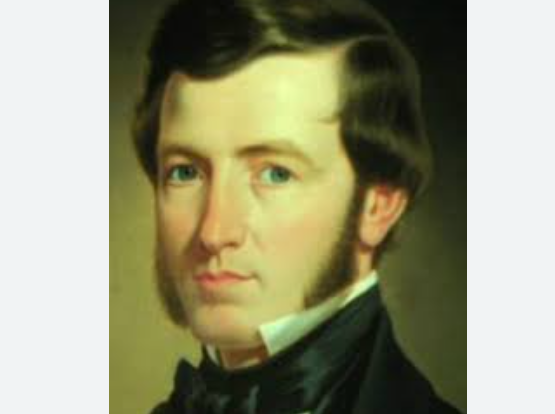William Billings, a notable American composer and hymn writer, resided and created his works in Boston, Massachusetts, throughout the late 18th century. His influence on the development of early American music has established a significant legacy, and the narrative of his life is both compelling and motivational.
A Musical Legacy: The Life and Works of William Billings
Early Life and Career Beginnings
William Billings was born in Boston on October 7, 1746, into a family of modest means. From an early age, he was required to earn his own living, which led him to pursue a career as a tanner, a profession that ensured a reliable source of income. Although he did not receive formal education, his passion for music flourished, prompting him to start composing hymns and anthems.
Despite the challenges posed by his upbringing, Billings’s dedication to music became a defining aspect of his life. His compositions, which included a variety of hymns and anthems, showcased his innate talent and creativity, allowing him to make a significant contribution to the musical landscape of his time.
ALSO READ:Where Did Daniel Cormier Go to College?
Musical Education and Singing Schools
Billings acquired his musical training at singing schools, a prevalent institution in colonial America. These establishments focused on instructing students in music reading and the principles of harmonious singing. In 1769, Billings established his own singing school, where he imparted his knowledge of music to aspiring musicians. His primary instructor was John Barry, who had previously served as the choir director at the New South Church.
Through his experiences at these singing schools, Billings developed a strong foundation in music education. His initiative to open a school not only showcased his dedication to the art but also contributed to the musical landscape of his time, fostering a community of learners eager to explore the intricacies of musical expression.
Residence and Work in Boston
Billings dedicated a significant portion of his life to the city of Boston, where he pursued careers as both a tanner and a music educator. His residence was situated in close proximity to the White Horse Tavern, a well-known venue frequented by musicians and artists alike.
In addition to being a home, Billings’ dwelling functioned as a creative space where he composed and published his musical works, contributing to the vibrant cultural scene of the time.
ALSO READ:Where Did Cody Johnson Go to College?
Contributions to American Music
Billings is widely recognized for his contributions to hymns and anthems, which appeared in numerous tunebooks throughout his career. His inaugural collection, The New-England Psalm-Singer, released in 1770, holds the distinction of being the first published anthology of music that was entirely American in origin. This was succeeded by other significant works, including The Singing Master’s Assistant in 1778 and The Continental Harmony in 1794, among various others.
The compositions of Billings are characterized by their energetic rhythms, clear harmonies, and profound emotional resonance. His innovative approach to music has left a lasting impact on the American musical landscape, establishing him as a pivotal figure in the development of American choral music.
Legacy and Impact
The compositions of William Billings have established themselves as a fundamental component of the American folk tradition. Notable pieces like “Chester” and “The Rose of Sharon” continue to be performed in contemporary settings. Billings’ impact on the landscape of American music is significant, and his commitment to both the creation and education of music has resulted in a remarkable legacy.
Billings’ contributions to music have resonated through generations, solidifying his status as a pivotal figure in American cultural history. His works not only reflect the musical heritage of the time but also serve as a testament to his enduring influence on the development of American musical identity. The dedication he exhibited in his craft and teaching has ensured that his legacy remains vibrant and relevant.
Conclusion
William Billings, a pioneering figure in American music history, dedicated his life to the art of composition and education. Residing and working primarily in Boston, Massachusetts, he made significant contributions to the development of early American choral music. His innovative approach to hymns and anthems, characterized by their energetic rhythms and emotional depth, has left a lasting impact on the American musical landscape. Billings’ dedication to both creating and teaching music has ensured that his legacy remains vibrant and relevant, inspiring generations of musicians to explore the rich tapestry of American musical heritage.
ALSO READ:Where Did Jimmy Buffett Live in Key West?
FAQ’s
Where did William Billings live?
William Billings was born and lived in Boston, Massachusetts. He spent his entire life in Boston, where he composed music, taught singing schools, and worked in various capacities.
What was William Billings’ profession?
Billings was a tanner by trade, but he is most well-known for being America’s first choral composer. He also worked as a singing schoolmaster and briefly held jobs such as street sweeping in Boston during financially difficult times.
What is William Billings known for?
William Billings is best known for his contributions to early American choral music. He composed over 350 works, including famous pieces like “Chester” and “The New England Psalm-Singer.” He was a key figure in shaping the distinct American musical style.
Did William Billings teach music?
Yes, Billings taught music at various singing schools throughout his life. He opened singing schools in Boston and nearby towns such as Stoughton, Massachusetts, where he instructed students on choral singing.
What type of music did William Billings compose?
Billings primarily composed sacred music, including hymns and anthems. His music was characterized by its simplicity and imitative counterpoint, which later influenced the “shape note” singing tradition in the United States.


